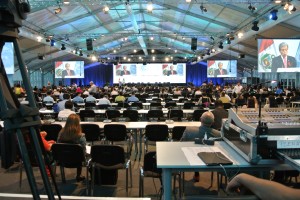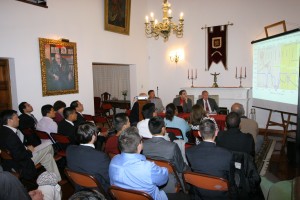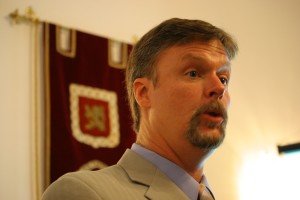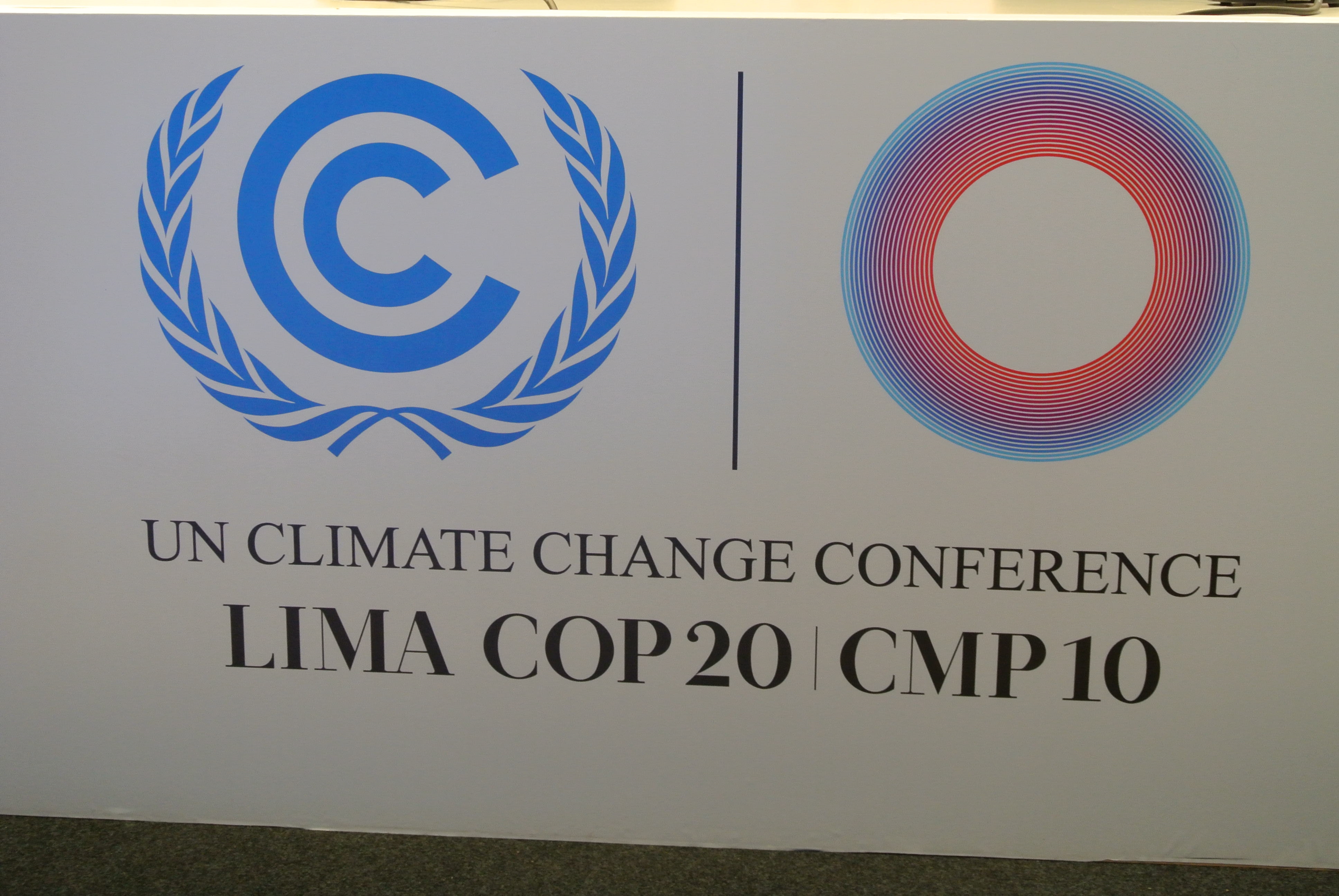For a treaty to have any validity, it must be honored by both parties. That is why Ronald Reagan used to famously say, “trust, but verify.”
At the UN Climate summit in Peru this whole issue of verification has moved front and center as various parties balked this week at the notion of letting an international body like the UN play judge and jury to their energy policies.
 Why is this important? Under a UN timetable, nations have an informal deadline to submit national plans for limiting greenhouse gas emissions of March 31, 2015. This is the date set by UN bureaucrats to give them time for a thumbs up or down review before the big Paris summit.
Why is this important? Under a UN timetable, nations have an informal deadline to submit national plans for limiting greenhouse gas emissions of March 31, 2015. This is the date set by UN bureaucrats to give them time for a thumbs up or down review before the big Paris summit.
The principle is simple: Any country that asks you to trust them under a UN climate treaty without verification is lying. It’s a pity President Obama didn’t understand that when he pledged to throttle down American energy production today in exchange for unverifiable pledges by China to start worrying about its emissions in 2030.
The European Union is leading the charge for verification. Their motive is clear and self-serving. The EU announced last October they are committed to hacking their carbon emissions by a whopping 40 percent by 2030. They’ve gone all in on climate zaniness, and because EU officials know their carbon reduction policies will likely hike energy prices, kill jobs and stunt economic growth — they want to make darn sure others are also intent on slashing and burning their own standards of living as well.
Others, however, aren’t so insistent.
The United States, for example, feels there’s no need to be pushy. The Obama administration, which has pledged to cut emissions by 26 to 28 percent below 2005 levels by 2025, said a review of national pledges for curbing rising greenhouse gas emissions before the U.N. summit in Paris next December was ‘not fundamental.’ And as for China, which has ‘promised’ (albeit without any verification) to cap its soaring emissions by around 2030, it has signaled complete hostility to the idea of letting other nations challenge its policies.” Other nations, including Brazil, South Africa and some developing nations, say they’re on the path to resolving some differences of approach — but thus far they have given scant indication they are on board with the verification process.
While all this has been going on, CFACT continues to reach out to friends and allies  here in Peru. Last night, the organization Tradición y Acción por un Perú Mayor (Tradition and Action for a Greater Peru), hosted an event featuring CFACT speakers Walt Cunningham, Marc Morano and me. The room was packed and our speakers well received.
here in Peru. Last night, the organization Tradición y Acción por un Perú Mayor (Tradition and Action for a Greater Peru), hosted an event featuring CFACT speakers Walt Cunningham, Marc Morano and me. The room was packed and our speakers well received.
“I think this event is important,” event organizer Alejandro Ezcurra said, “the issue of global warming is one many people are skeptical of, but do not necessarily know the facts why. This session presented the clear facts and helped them understand.”
Col. Cunningham led off the discussion by talking about the earth’s geological history and fluctuating nature of carbon levels. He interjected interesting points taken from his experiences as an Apollo astronaut and urged the crowd to “not just believe what they’re being told, but to check the facts for themselves.” He included what he was telling them in that admonition.
Morano followed up by showing slides of quotes by noted climate alarmists making outrageous claims of doom and gloom. At several points the crowd broke out in laughter or were simply astonished, such as when Morano showed them quotes by famous green thinkers saying insensitivity to global warming alarmism is a “sin,” and then viewing pictures of climate protestors praying to Mother Earth at a recent march and vigil in New York City.
 After the meeting was over, CFACT received a call to brief the president of a major Peruvian political party, the Christian Popular Party, and is scheduled to meet with him before the close of the UN climate conference on Friday.
After the meeting was over, CFACT received a call to brief the president of a major Peruvian political party, the Christian Popular Party, and is scheduled to meet with him before the close of the UN climate conference on Friday.
The CFACT team is continuing to make inroads with the people of Peru, just as it did with the people of Poland last year. CFACT continues to create strong bonds of friendship with people in all parts of the world who are ready to join the fight to promote freedom and progress. We are excited as our organization becomes increasingly international in reach and scope.

I thought exactly as you do when I first heard of the President’s agreement. So what now? What is the response from Congress?
NOT ONE WORD ABOUT GOENGINEERING ((((((( WHY )))))) .
Thanks so much for this article- sharing with my Libertarian/Rothbardian/Anarchocapitalist friends on FB right now. :)
Its all a way to control people. New laws and new taxs to go along with them. And this is Obamas last so called big thing he wants to be remembered for. It seems like a lot of his thinking for the country has an effect of killing jobs and growth. Well he never has run a business. Or had a job. His actions show this. This climate summit is about agreeing on a way to control people. Its all part of agenda 21.
It appears that Cfact is having some impact on Peru. I hope that impact is contagious. There are so many AGW groups that continue to spew propaganda that is disturbing in that a lie repeated may eventually become recognized as the truth. Everyone who is a skeptic must continue to voice their facts and opinions.
CO2, Global Warming, Carbon Tax is
just another JEW WORLD ORDER SCAM to fund the coming COMMUNIST ONE WORLD
GOVERNMENT, JEW WORLD ORDER SCAM